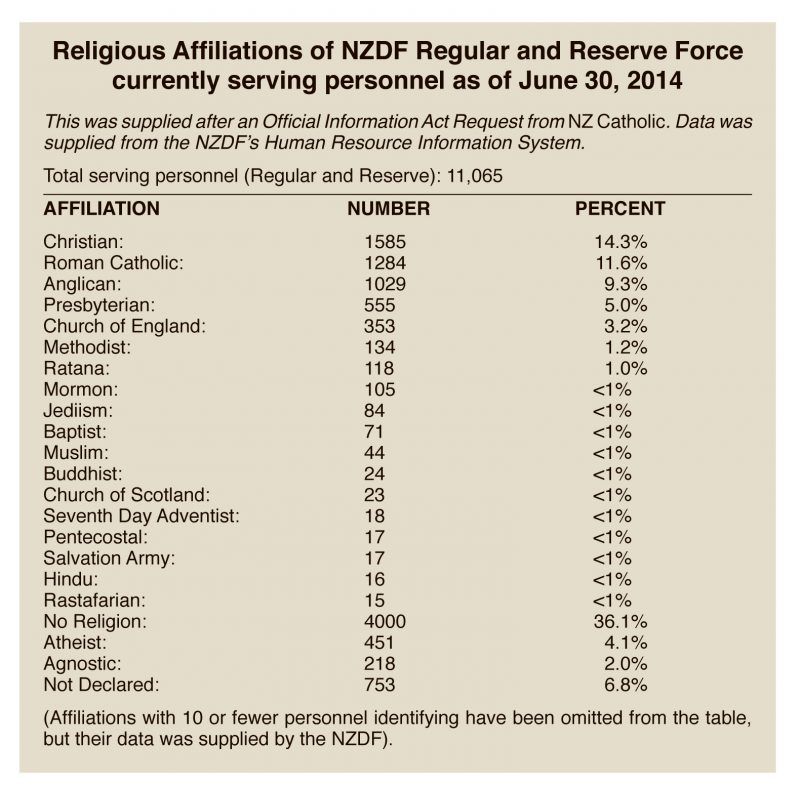by MICHAEL OTTO
Secular groups overseas are calling for humanist chaplains in the armed forces, but New Zealand’s main military chaplain isn’t convinced they are needed here.
Last year, NZ Catholic asked principal defence force chaplain Rev. Lance Lukin if he saw a place for humanist chaplains in New Zealand’s military.
There have been high profile battles on this issue in the United States and the United Kingdom.
Rev. Lukin pointed out that, to his knowledge, only the Netherlands has specifically humanist chaplains for its military.
Belgium is also thought to have such “non-religious” chaplains.
Rev. Lukin said he saw such chaplains as “effectively, they are social workers”.
“They help people who don’t want to see a chaplain.”
He noted that the New Zealand Defence Force has this capability, but doesn’t call the personnel involved “chaplains”.
There are social workers in the New Zealand Navy, and family service workers across the Army, Navy and Air Force, he said.
“So we are not rushing to call them chaplains, but we have that capacity in a different format.”
Rev. Lukin said that, according to NZDF orders, chaplains are there to cater for the pastoral care and spiritual well-being of all members of the military, regardless of faith, creed, gender identity or beliefs.
Figures released under the Official Information Act show that as of June 30 last year, 46.5 per cent of 11,065 regular and reserve force NZDF personnel identify as some type of Christian.
Some 42.2 per cent of NZDF personnel identified as atheist or agnostic or no religion, 4.2 per cent identified with a non-Christian religion and 6.8 per cent did not declare their affiliation.
 There were 1284 Catholics (11.6 per cent) among the NZDF personnel.
There were 1284 Catholics (11.6 per cent) among the NZDF personnel.
In the 2013 general population census, 48.9 per cent of those who answered the religious affiliation question identified as some type of Christian, with 42 per cent identifying within the rapidly growing “no religion” category.
But in the United Kingdom, information released under that country’s Freedom of Information Act showed
that about 83 per cent of their military identified as Christian in 2012.
For the general UK population, the figure was only 59 per cent, according to their 2011 census.
But a small rise in the proportion of UK military personnel professing no religion (9 per cent between 2012 and 2013), has seen calls for better consideration of how these people’s needs are met.
UK National Secular Society president Terry Sanderson also called for “an urgent and unvarnished re-examination of the appropriateness of the pervasive religious ethos in the armed forces”.
In the United States, a man wanting to become a humanist chaplain in the US Navy has taken his case to court, after the Navy turned down his application without explanation last year.
Former youth minister Jason Heap, backed by the Humanist Society in the US, is arguing that the Navy violated his constitutional rights in rejecting his application.
Last year, the US Air Force dropped a contested requirement that its personnel state “So Help Me God” as part of official oaths.
And the US Army added “humanist” to the list of preference codes by which soldiers can identify themselves officially.
No humanist chaplains on NZ military horizon
Posted in News
Reader Interactions